Ann Vanstone: ICAC boss on corruption, golf and life as a judge
Ann Vanstone’s journey to one of the most challenging positions in the legal system includes high-profile cases, accusations of bias and the odd round of golf
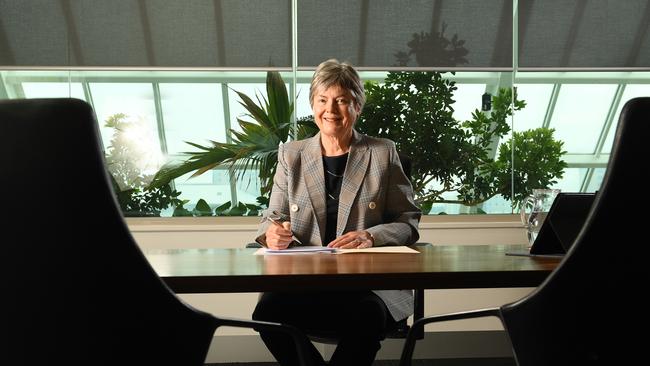
SA Weekend
Don't miss out on the headlines from SA Weekend. Followed categories will be added to My News.
Like many individuals, Ann Vanstone’s path in life was determined by a single, but crucial decision made when she was a teenager. It was to choose between two wildly different careers.
One would pacify her parents, the other would have served to satisfy her teenage obsession.
Fortunately, a prudent decision resulted in her embarking on a law degree that opened the door to a stellar legal career that has seen the adroit silk reach the pinnacle of her profession.
After spending two decades establishing a reputation as a respected prosecutor and barrister, Vanstone jumped from the bar table to the bench and, over the next two decades, morphed into one of the state’s longest-standing jurists in the higher courts.
In both guises, she has been at the forefront of dozens of high-profile legal cases that have ranged from sinister murders and a landmark self-defence killing to a Royal Commission that ultimately torpedoed a well-known politician’s career.
But rather than drift into a cozy retirement swinging her favourite five iron, the diminutive legal figure has taken on perhaps the most challenging role of her career as SA’s Independent Commissioner Against Corruption. The position is perhaps the most coveted – and challenging – in our justice system.
In stark contrast, had she taken that alternative career route almost five decades ago, Vanstone, now 66, would have become a physical education teacher – at the time a real consideration for the sports fanatic.
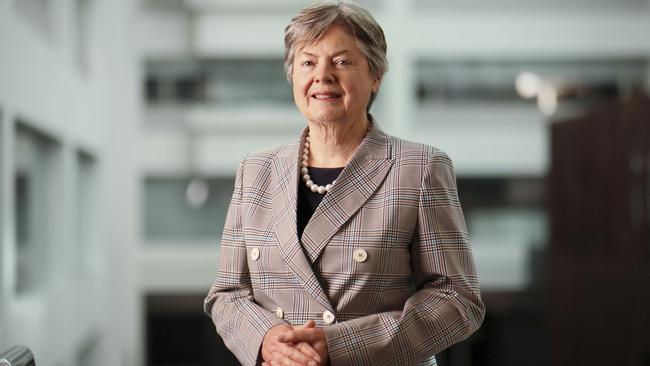
Raised in Torrens Park, Vanstone’s father Bartley was a dentist while her mother Nan was, according to her, a superb cook, great entertainer and a loving parent. Elder brother Tony became a successful lawyer and younger sibling Michael, who is deceased, a journalist with The Adelaide Review and then Sydney Review.
Educated at Walford Anglican School for Girls, Vanstone describes her childhood as both happy and unremarkable. Her school years were preoccupied with sport, rather than academic endeavours. A reasonable student, she concedes she could have done better had she applied herself to studying as eagerly as she pursued hockey, tennis, softball and athletics.
“I was mad keen on sport, that’s all I ever wanted to do. Most of my world revolved around sport in those days,” she recalls enthusiastically.
It was only in Year 12 that she turned her mind to the future, initially considering teaching physical education but finally deciding on law like older brother Tony.
Her contemporaries at the University of Adelaide included David Lovell, now a Supreme Court Justice, solicitor Stephen Ey, barrister Martin Frayne SC and Tony Besanko, now a Federal Court Judge.
Her preoccupation with sport continued during her university years. Golf became popular, a keen interest that remains today.
While she found most subjects interesting and not overly taxing, she remembers glazing over when constitutional law was being taught.
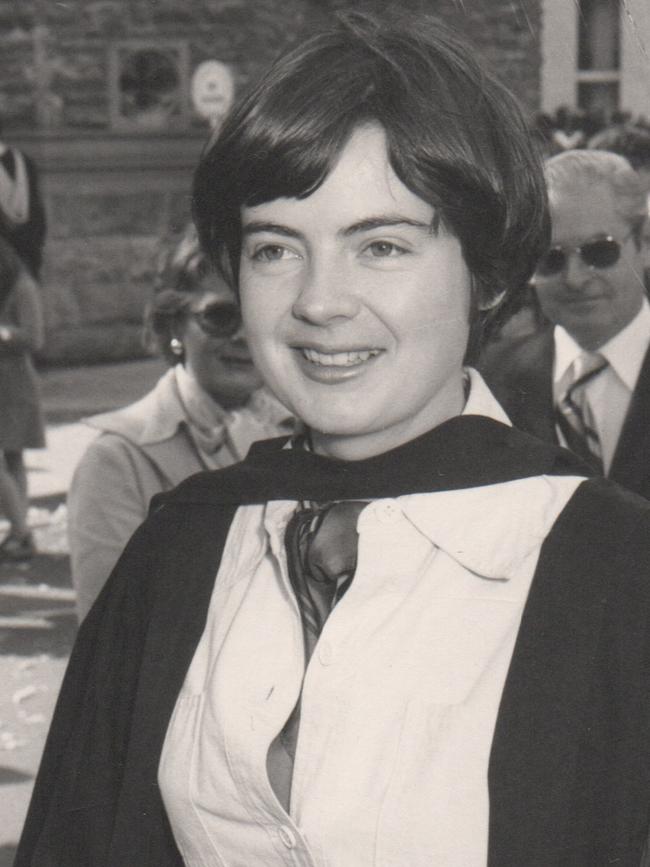
After graduating in 1976, Vanstone did her articles at Cleland’s and after being admitted to the bar in early 1978, worked as a solicitor there for another 14 months. While she enjoyed working with clients seeking legal help, a yearning desire to get into court was not being fulfilled.
While criminal law wasn’t a burning ambition, her interest had been piqued, prompting a move to work for the then Crown Prosecutor’s Office, located in Flinders Street.
Vanstone was the 13th prosecutor to be hired and the only female one working in the office, which was small by today’s standards. She has vivid memories of her first weeks – junioring then Crown Prosecutor Barry Jennings in a murder trial and the following week, prosecuting in a theft trial. The offender was convicted.
Her first victory was both satisfying – because justice had been served – and confidence-building. It also reinforced her decision to join the CPO. “I thought I might go to the prosecutor’s office and spend two or three years there and go to the bar, that was my plan of action,” she says.
Somehow, things didn’t go according to plan. That two or three years turned into 15 years. After almost a decade as a prosecutor Vanstone was appointed Deputy Crown Prosecutor under Paul Rofe QC. Four years later when the office morphed into the Office of the Director of Public Prosecutions she was appointed deputy DPP.
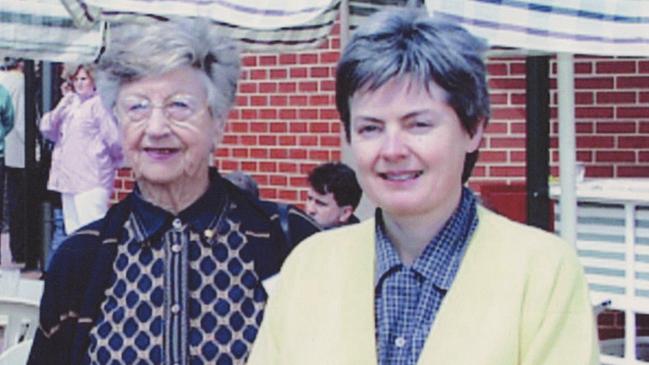
While Vanstone prosecuted around 20 murderers, perhaps the most heinous was child killer Dieter Pfennig who was charged with the murder of schoolboy Michael Black in 1992. She called 106 witnesses in the six-week trial. Pfennig was found guilty and given a life sentence with a non-parole period of 25 years by Justice Brian Cox.
Her memory of the case and details are still crisp. In an instant she recalls the registration number of Pfennig’s Kombi van – RUP175 – and how detectives boldly parked it squarely in front of the Supreme Court building on a low loader when it was needed as an exhibit.
Although it was 25 years before Pfennig would be charged and eventually convicted of murdering schoolgirl Louise Bell, Vanstone remembers Major Crime detectives Lyn Strange and Paul Maddern discussing their suspicions that Pfennig was also responsible for her death during the Black trial. Pfennig’s non-parole period was increased to 60 years following his conviction in 2016 for killing Louise Bell.
In March 1994 Vanstone was appointed Queen’s Counsel. While she harboured a desire to become DPP, she realised Rofe’s contract still had years to run and later that year she resigned as deputy DPP and joined the independent bar, establishing Christopher Legoe Chambers with Michael David QC and Ian Sampson.
“I should have gone earlier really, but the work just got better and better,” she says.
“In the end I was appearing in the High Court and doing whatever work I wanted to do. It was great.”
Over the next five years she took on briefs involving criminal, commercial, civil, administrative and family law. It was work she found enormously satisfying, especially when defending individuals of limited means accused of a crime who were up against the unlimited resources of the crown.
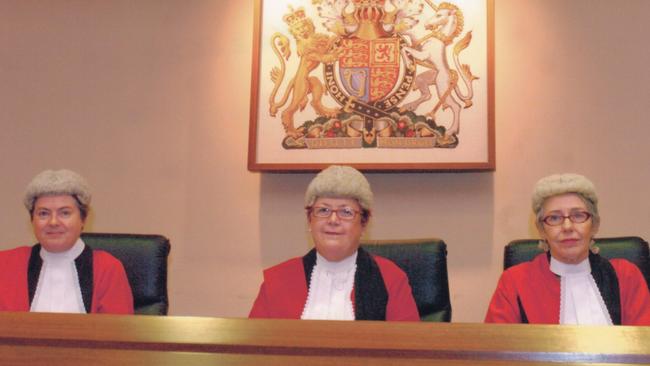
It was while at the bar Vanstone had her first taste of politics and the justice system. It came in the form of the Marks Royal Commission in Western Australia in 1995. Appointed counsel assisting, it allowed her acute skills as a prosecutor to shine.
The inquiry was into the so-called Easton affair, a political scandal that engulfed the WA Labor Party after a Labor MLC tabled a petition in 1992 containing false allegations concerning a former senior public servant named Brian Easton that resulted in the suicide of his estranged wife Penny. It was orchestrated at the highest levels of the government in an attempt to slur then Liberal Opposition leader Richard Court. The Liberals won government the following year and established the inquiry.
Among the many, many witnesses was former WA premier Carmen Lawrence, by then Federal Health Minister. Under unrelenting cross-examination by Vanstone, Lawrence was like a rabbit in the crosshairs. In an astonishing performance in the witness box, she said she could not recall events she was being quizzed about on some 40 occasions.
In the wake of the inquiry, which found Lawrence had lied about her knowledge of the petition while being cross-examined, she was charged with three counts of perjury but was subsequently acquitted by a jury. From the moment the inquiry was called, senior Federal Labor MPs – including then Prime Minister Paul Keating – labelled it a political witch-hunt designed to wound one of their stars. Vanstone was one of their targets.
Critics bellowed that it was not just the inquiry that was biased, but those running it. For the first time allegations of Liberal bias were levelled at Vanstone, simply because her brother Tony had married senior Liberal MP Amanda Vanstone.
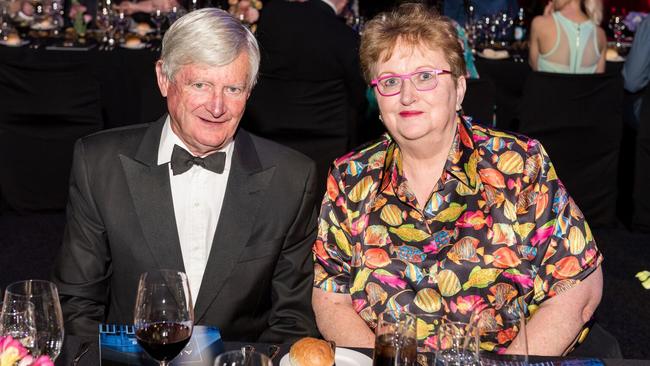
Vanstone says she was “amazed and a bit resentful” at the imputation that simply because her brother had married a senior Liberal, it meant “I was a Liberal supporter”.
Already well-established in her legal career by the time Amanda Vanstone entered politics in 1984, she was chosen as counsel assisting the inquiry because of her reputation as one of SA’s sharpest and successful prosecutors.
“I thought that was extraordinary,” she says. “All of those years I had been at the bar seemed to count for nothing. It was assumed I had been chosen because they thought I would be a Liberal sympathiser.
“They had no basis for it, I have never been a member of any Liberal party or any party, and I thought that was extraordinary. It was a shock to me how political it was …”
Vanstone says she had always admired Lawrence as a politician and “felt a bit sorry for her in a way” – despite the fact she gave untruthful evidence.
“She just sort of drifted into this situation and others had imposed their will on her and she hadn’t had the strength to stand up to them,” she says.
Vanstone said she remembers one of the first questions she asked Lawrence, for no other reason than the fact she was genuinely interested, was what her psychology thesis at university was about. With a look of surprise on her face, Lawrence had replied it was about Alzheimer’s disease.
“Little did I know that she was about to say I can’t remember 40 times to my questions,” Vanstone says with a wry smile.
“When I asked her that she looked at me closely, as if to say ‘You’ve done your homework,’ but it was out of the blue.”
Vanstone said the inquiry was satisfying because it had taken her out of her comfort zone of criminal law and into “something completely new” – as well as allowing her to enjoy Perth for six months.
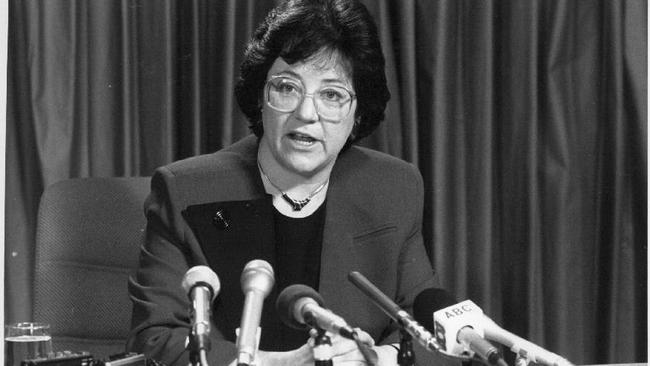
While Vanstone prosecuted a good number of high-profile killers during her early career, one of the more unusual was that of tow truck driver Kingsley Foreman in 1995. Charged with murder, Foreman shot and killed an armed man who was robbing a service station.
Vanstone said she was not at all surprised when Foreman was acquitted by a jury after just four hours of deliberations.
“I was expecting that, it was the right decision,” she says candidly.
That expectation was simply because the victim was an armed robber who threatened a female console operator with a knife and had terrified her. Foreman, who was standing next to her and just happened to be carrying a pistol, had fired at the man in self-defence because he thought the man was turning to return to the counter.
In a typically “only in Adelaide scenario” Vanstone was prosecuting the case, while Michael David QC was defending him. They had adjoining offices in Christopher Legoe Chambers.
To add to the irony, the Supreme Court trial Justice was Bruce Lander – the man Vanstone would replace on the Supreme Court bench eight years later and then succeed as the ICAC some 17 years after that. Vanstone was hired to prosecute the case after then DPP Paul Rofe QC was charged with drink driving. Briefed shortly before a planned overseas holiday, Vanstone and David ensured the trial was efficiently and properly completed in just under four days – a far cry from what would likely happen today.
Following the verdict Rofe, obviously expecting a guilty verdict, had asked her “What happened, went wrong?” and she replied: “Nothing went wrong at all.”
Vanstone says while she enjoyed prosecuting immensely, perhaps her greatest satisfaction came from “examining witnesses, just getting them to tell their story”.
“I loved cross examining too and I liked the fact a jury was there, people from the community, who were making the decision,” she says.
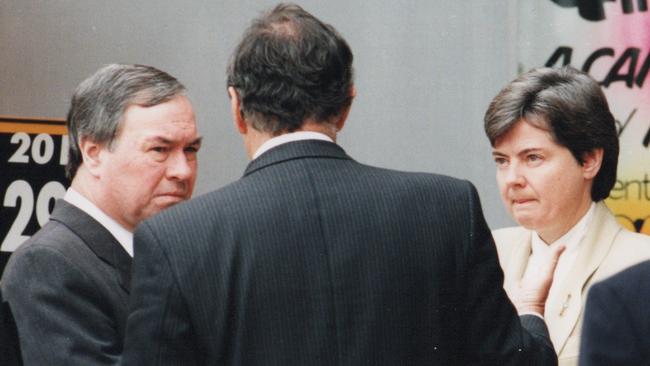
“I had a lot of confidence in them. If they acquitted someone, usually I tended to agree with them. There were only a couple of times I thought perhaps they acquitted when they could have convicted, but not that often. Their judgment was so good.”
Such was Vanstone’s talent in prosecuting, she had the unfettered trust of the state’s senior homicide detectives. Many ensured she was assigned to their case before an arrest was even made.
Such was this trust, following a successful verdict Vanstone was as much at home sharing a cold beer with them as she is today indulging her passion for Modernist and Aboriginal art while walking the corridors of the art gallery.
Vanstone says while the circumstances, many horrifically unimaginable, of the individual murders she prosecuted over those 15 years and subsequent trials she presided over for another 15 or so did not greatly distress her at the time, they have had a cumulative effect on her mental state.
“Dealing with those matters constantly over a long period of time has actually scarred me a bit,” she admits.
“I have spoken to other judges who had felt a bit the same way too.”
As a result of this lengthy exposure to violent and inhumane behaviour, Vanstone says she now cannot watch violence on the screen or read books containing violent content.
Vanstone had been at the independent bar for five years when in September, 1999 she was offered a spot on the District Court bench. While it wasn’t an ambition, she expected she may one day end up there, having knocked back a similar offer shortly after leaving the ODPP.
“It was just far too soon for me; I wanted to enjoy where I was. Things had changed a little the second time. Michael had gone to the bench, it was just time,” she says.
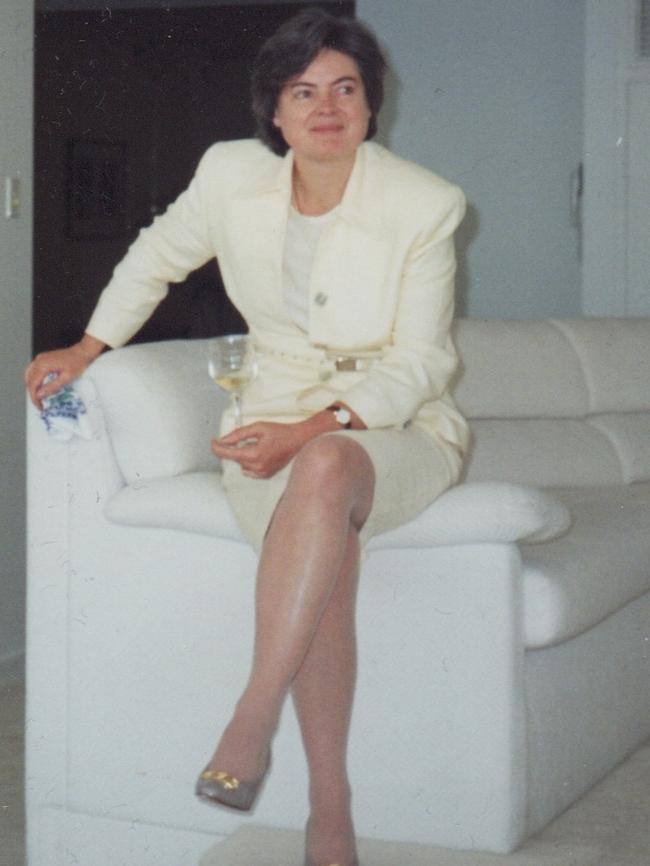
Vanstone had been on the District Court bench for four years when she received a phone call from then Labor Attorney-General Paul Holloway offering her a position on the Supreme Court bench. To his surprise, she knocked it back, simply because she was enjoying the District Court work and its environment so much.
“I told him I was very honoured, but no thanks. I think he almost dropped the phone,” she says.
It was not until then Chief Justice John Doyle spoke to her and convinced her she should accept the offer that she relented.
“It was a good thing to do, but I wasn’t looking for it. John told me the work was great and it was, it was excellent and it broadened my horizons,” she says.
Over the ensuing decade and a half Vanstone would preside over some of the state’s highest profile murder cases and claim the title as the senior puisne Judge of the Supreme Court.
Vanstone’s judicial career ended in June 2019 when she resigned as a Justice of the Supreme Court. Although she had not yet reached retirement age, she says she quit simply because she didn’t want to sit on the bench for 20 years.
“I don’t think you are doing your best work after sitting on the bench for 20 years, or after 19 years. I had had enough and needed a rest,” she says.
For the next 12 months she did just that, cramming in three trips, including a golf trip to Ireland with friends. Although she says it has grown a little now, during that trip she boasted a tidy 13 handicap. She had planned to try and get below a 10 again, but that has so far eluded her despite spending more time on the greens at Kooyonga. While Vanstone was swinging her clubs, speculation was growing in Adelaide’s legal circles concerning her future as the new ICAC. It was also something of which she was mindful.
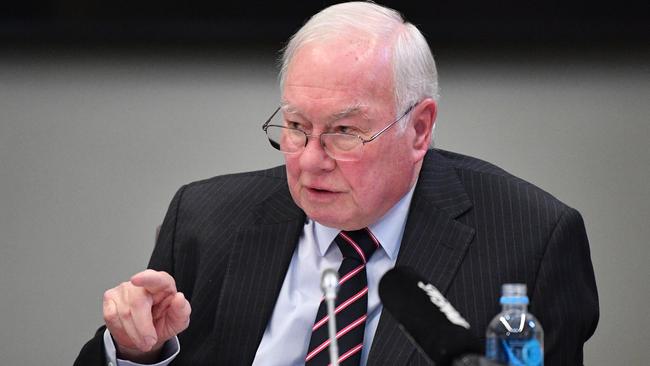
“I have always known it was in the wind because I knew when Bruce’s contract was due to finish. It was always sitting there and I always knew I was interested in it,” she says.
She says the position was first seriously discussed with Attorney-General Vickie Chapman early last year. She realised she had the job when Chapman walked her across Victoria Square to meet with Premier Steven Marshall.
One of Vanstone’s tasks as a senior puisne judge was to chair the Electoral Districts Boundaries Commission review, a job she found rewarding and enjoyable – apart from the usual suggestions of bias levelled at her.
“Again, the fact of being Amanda’s sister-in-law raised its head,” she says.
But rather than becoming agitated at the slur, she said she found it rather amusing. The Labor snipers either forgot, or chose to, the fact she was appointed to the Supreme Court by a Labor government and appointed to the commission by the Chief Justice.
While the findings, which turned a number of Liberal and Labor held seats into marginals, were challenged by Labor they were upheld by the full bench of the Supreme Court.
Vanstone slipped behind her new desk in early September and into another political storm. She took over an investigation into alleged rorts of the country members’ allowances by a number of MPs initiated by her predecessor. She wasted little time in fine-tuning and clarifying the inquiry – publicly exonerating several MPs while doubling down on the remainder. Narrunga MP Fraser Ellis last week was charged with 23 counts of deception. Enquiries into other MPs continue.
She has also made her plans clear to her 70 or so staff, signalling her intention to concentrate investigations on corruption, rather than embarking on more maladministration inquiries like those previously undertaken by the office.
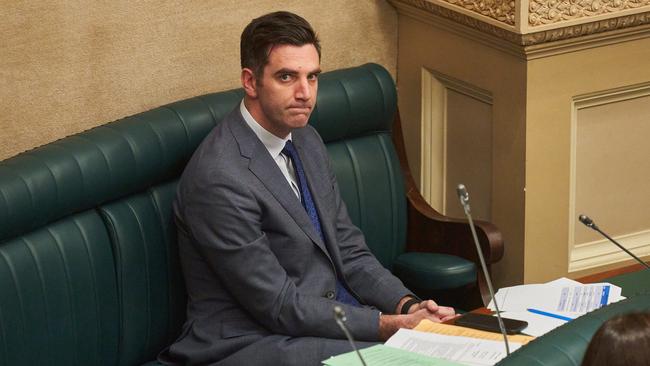
Unless there is an urgent, specific need, they will be steered off to other agencies such as the Ombudsman.
While she does not believe SA has corruption anywhere near the levels of the eastern states, it was clear there were corrupt individuals who took advantage of weak practices and exploited vulnerabilities where they saw an opportunity for personal gain – financial or otherwise.
Unsurprisingly, Vanstone views prevention as a very significant part of office’s workload and one that cannot be hived off to another agency.
“The only way to be effective in attacking corruption is to attack not only the manifestations of it, but also prevent it,” she says.
“Your work preventing it is informed by what you learn in your investigations. It is so much more effective to prevent it, rather than allowing it to develop and picking off individuals who are guilty of it.”
Although the office has now been operating for seven years, Vanstone said she felt the public did not know a lot about its activities, simply by virtue of the secrecy legislation that governs its operations. It is something that she plans to remedy, feeling there is scope to reveal more details on corruption investigations where possible and provide more commentary on other activities the office becomes involved in.
On the prickly subject of public hearings if they were to become permissible, she is opposed to them for corruption investigations, but believes there may be scope in maladministration inquiries. She believes it would have been beneficial for both public and witnesses if there had been public hearings in Oakden inquiry, which she felt was much like a royal commission.
“What people don’t know about they are inclined to guess at and perhaps be suspicious of,’’ she says.
“I think there is a little bit of room to be a little bit more open about our work.’’
She stressed that people should not be afraid of the organisation and making a complaint if they see something untoward.
“We all want the same thing, we actually all want public administration to be delivering with integrity in the best interests of the public,” she says. “Sometimes there are individuals who do not hold that up and they should be held to account. We are not here to punish people who have not done anything wrong, we are here to work for the benefit of the public.
“It is hard to get that across, but it is important and we will in time.”


